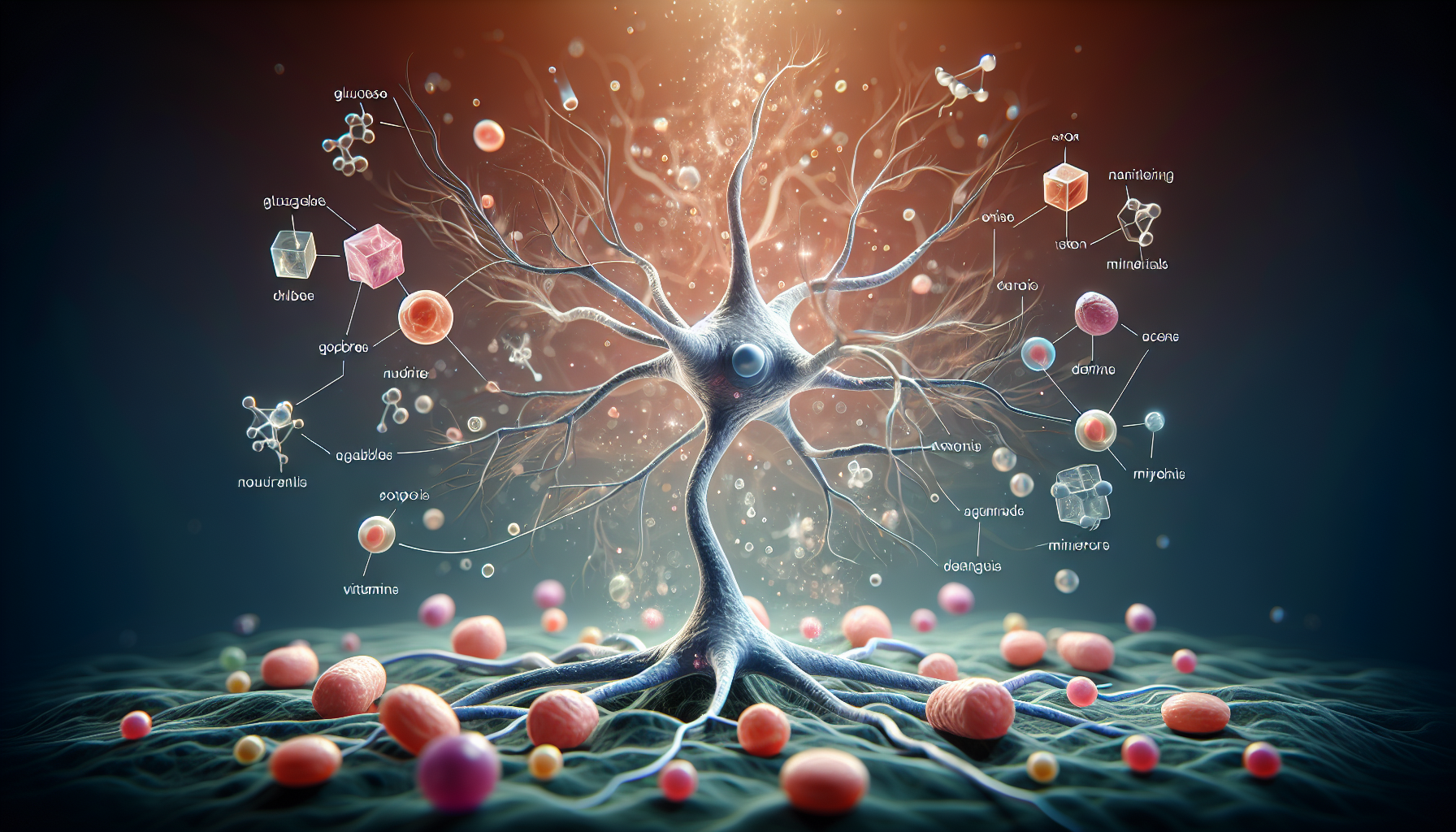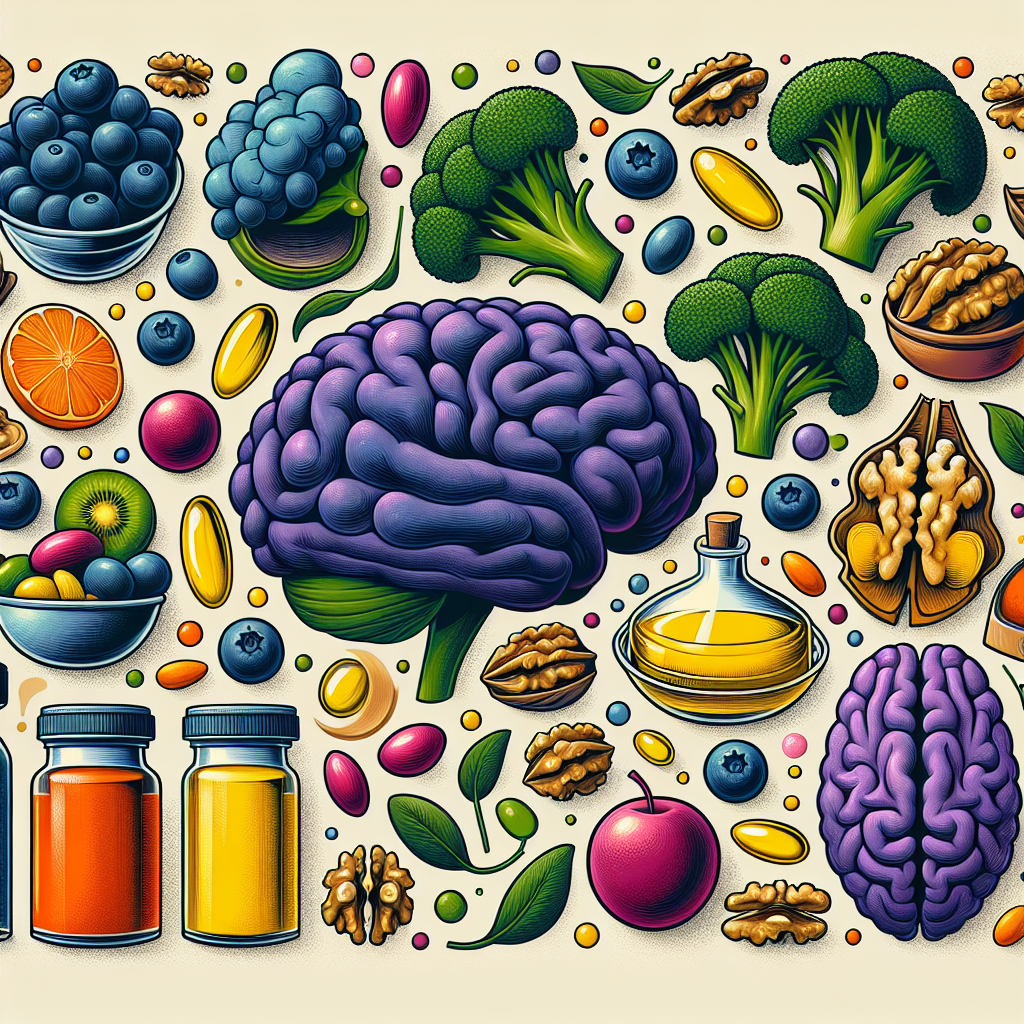Nutrition is the foundation upon which our body builds and maintains its functions, including the crucial operations of the brain. The brain is an organ with high metabolic demands, requiring a constant supply of nutrients to perform optimally. A deficiency in certain nutrients can have profound impacts on neurological function, affecting everything from cognitive abilities to emotional health. This article delves into the intricacies of how nutrient deficiencies can alter brain function and what can be done to mitigate these effects.
The Brain’s Nutritional Needs
The brain is a complex network of neurons and supporting cells that communicate through electrical and chemical signals. This system requires a variety of nutrients, including vitamins, minerals, fatty acids, and amino acids, to maintain its structure and function. Each nutrient plays a specific role:
- Omega-3 Fatty Acids: Essential for maintaining cell membrane fluidity and facilitating communication between neurons.
- B Vitamins: Crucial for energy production and synthesis of neurotransmitters.
- Antioxidants: Protect the brain from oxidative stress.
- Amino Acids: Serve as building blocks for neurotransmitters.
- Minerals: Involved in a myriad of functions including nerve transmission and brain metabolism.
Understanding these needs is the first step in addressing how deficiencies can lead to neurological issues.
The Consequences of Deficiencies
When the brain is deprived of essential nutrients, several areas of function can be compromised:
Cognitive Decline
Nutrient deficiencies, particularly of B vitamins, omega-3 fatty acids, and antioxidants, can lead to a decline in cognitive functions such as memory, attention, and problem-solving. Studies have linked low levels of these nutrients to increased risks of cognitive decline and neurodegenerative diseases like Alzheimer’s.
Mood Disorders
The synthesis of neurotransmitters like serotonin and dopamine is highly dependent on the availability of certain amino acids and micronutrients. Deficiencies in these can contribute to mood disorders such as depression and anxiety.
Neurological Diseases
Certain nutrients are neuroprotective. For example, omega-3 fatty acids and Vitamin E have been shown to reduce the risk of diseases like Parkinson’s and Alzheimer’s. Without adequate intake, the brain becomes more susceptible to these conditions.
Neural Development
During pregnancy and early childhood, nutrients like choline are essential for brain development. A lack of these nutrients can lead to developmental issues and long-term cognitive deficits.
Mitigating the Impact Through Diet and Supplementation
Addressing nutrient deficiencies is a multi-faceted approach that includes diet modification and possibly supplementation. Consuming a diet rich in fruits, vegetables, whole grains, lean proteins, and healthy fats can provide a broad spectrum of the nutrients the brain requires. For some individuals, supplementation may be necessary to meet their nutritional needs.
The Role of Supplementation
In cases where diet alone cannot rectify the deficiencies, supplements can play a crucial role. For instance, vegetarians and vegans may require B12 supplements, while individuals with malabsorption issues might need more bioavailable forms of certain vitamins or minerals.
It is crucial to consult with a healthcare provider before starting any supplementation regimen to avoid potential interactions with medications and to ensure the correct dosages are consumed. For comprehensive information on this topic, Avix Health’s guide on Medication & Supplements can be a valuable resource.
External Resources Supporting Nutrient’s Role in Brain Health
Several high-quality niche resources provide insight into the importance of nutrients for brain health:
- The American Society for Nutrition: Offers detailed research articles on the role of specific nutrients in brain development and function.
- BrainFacts.org: A collaborative project of The Kavli Foundation, The Gatsby Charitable Foundation, and The Society for Neuroscience, providing articles on brain health and the impact of nutrition.
- Nutrition Reviews: A peer-reviewed journal that often publishes comprehensive reviews on nutrition and brain health.
Linking Nutrient Deficiencies to Specific Health Concerns
Nutrient deficiencies not only affect the brain but can also have systemic implications. For example, a lack of Vitamin D, often associated with bone health, has also been linked to cognitive impairment and dementia. Understanding the connections between different aspects of health is vital in addressing nutrient deficiencies holistically. For detailed insights on how nutrition affects bone health, reference Avix Health’s section on Bone Health.
Relevant Avix Health Articles
To further explore the connections between nutrition and brain health, consider reading these related articles:
- Find out how various activities and lifestyle changes can support cognitive function and possibly accelerate recovery from neurological injuries in Techniques to Accelerate Recovery from Neurological Injuries.
- Understand the intricate relationship between mental health and the brain’s ability to change and adapt in The Connection Between Mental Health and Neuroplasticity.
- Learn about the potential benefits of dietary supplements on neurological health and function in Evaluating the Neurological Effects of Dietary Supplements.
Conclusion
Nutrient deficiencies have a profound impact on neurological function. A balanced diet, potentially augmented with supplements, is essential for maintaining brain health. Understanding the role of each nutrient and how deficiencies can manifest into neurological issues is a critical step in preserving cognitive function and overall well-being. For those looking to delve deeper into the science behind these findings, niche resources and additional literature from Avix Health can provide a wealth of knowledge and guidance.



